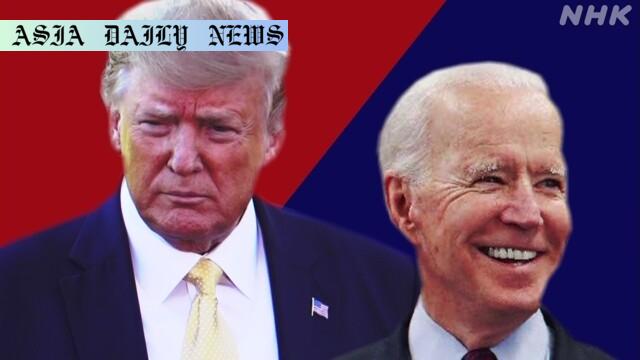Immigration Policy: Trump administration ends TPS extension for Venezuelans, reversing Biden’s humanitarian stance.
- Key Point 1: US President Donald Trump has rescinded Biden-era immigration policy by ending TPS extension for Venezuelans.
- Key Point 2: Approximately 600,000 Venezuelans under TPS face uncertainty due to removal of legal protections for humanitarian crises.
- Key Point 3: Trump administration reaffirms its focus on stricter immigration measures, citing national security concerns.

Trump Administration Ends TPS Extension for Venezuelans
The US administration under President Donald Trump has taken a decisive step in repealing another major policy of the Biden era, with significant implications for Venezuelan immigrants living in the United States. The latest move involves the revocation of the Temporary Protected Status (TPS) extension for Venezuelans, which had been implemented during former President Joe Biden’s term. The TPS program is a humanitarian provision designed to allow individuals from countries suffering from political, social, or natural crises to stay and work legally within the boundaries of the US.
Background on TPS and its Significance
The TPS program has historically served as a lifeline for thousands of immigrants fleeing violence, political oppression, and natural disasters. Under this program, beneficiaries are legally protected from deportation and are granted the right to earn a livelihood. President Biden had significantly expanded TPS coverage to include 17 countries such as Ukraine and Venezuela, emphasizing the need for compassion in addressing global humanitarian crises. Before leaving office, Biden extended TPS protection for Venezuelans by an additional 18 months, citing the severe political and economic emergency under Venezuela’s Maduro regime.
Impacts on Venezuelan Immigrants
The Trump administration’s decision to revoke the extension directly impacts approximately 600,000 Venezuelans currently benefiting from the program. Many of them have fled their homeland due to widespread poverty, instability, and repression. With this policy reversal, TPS recipients are now facing an uncertain future, with the risk of deportation hanging over them. One Venezuelan immigrant shared his fears about returning to a country mired in crisis, describing his anguish and uncertainty for his family’s well-being.
Trump’s Rationale Behind the Reversal
According to statements from the Department of Homeland Security Secretary Kristi Noem, the Trump administration’s decision stems from its commitment to strengthening border security and curbing illegal immigration. Noem argued that the revocation aligns with promises made by President Trump to prioritize the safety and sovereignty of the United States. The administration continues to focus on enforcing stringent immigration policies, which it believes are necessary to address the broader issues of national security and illegal migration.
Humanitarian and Legal Criticism
Critics of this decision have pointed out the dire humanitarian consequences for Venezuelan immigrants, many of whom have no viable options for returning to their home country. Advocacy groups and legal experts argue that targeting TPS recipients undermines America’s long-standing position as a beacon of refuge for the persecuted. They emphasize that stripping these individuals of protections will not only disrupt thousands of lives but also erode the moral foundations of US immigration policy.
The Broader Debate on Immigration
The revocation of TPS protections rekindles a larger debate over the role of immigration in America. While proponents of stricter immigration policies argue for prioritizing national interests and security, opponents advocate for a balanced and compassionate approach. For Venezuelans under TPS, this policy shift highlights the precariousness of living and working in a host country with shifting political and legal narratives.
Uncertain Future for Venezuelan Immigrants
As policy advocacy groups prepare to challenge the Trump administration’s decision legally, the immediate question remains: What will happen to the 600,000 Venezuelans already in the US under the TPS program? Many are calling for bipartisan legislative solutions that ensure stability for immigrants who contribute to American society while safeguarding national interests.
Conclusion
The Trump administration’s repeal of the TPS extension represents a significant shift in US immigration policy, one that directly impacts hundreds of thousands of Venezuelans. As this story unfolds, it underscores the importance of addressing immigration policy with not only pragmatism but also humanity, ensuring that vulnerable populations are not abandoned in their time of need.



Commentary
The Human Cost of Policy Decisions
The Trump administration’s decision to revoke the Temporary Protected Status extension for Venezuelans is a stark reminder of how deeply political decisions can affect the lives of everyday people. For the 600,000 Venezuelans living under TPS, the reversal of protections is not just a policy shift; it is a devastating blow to their sense of stability and security. Many of these individuals have fled unimaginable hardships in their home country, only to find themselves caught in a complex web of political power struggles in the US.
The Balancing Act of National Security and Humanity
Immigration has always been a contentious issue in American politics, and this latest development highlights the divide between a humanitarian approach and a security-first mindset. While concerns about border security and illegal immigration are valid, it is equally important to recognize the contributions of immigrants and the ethical obligation to protect those fleeing crises. Policies like TPS embody the values of compassion and inclusivity that many argue should define the United States.
Finding a Path Forward
What is needed now is a clear, bipartisan effort to address the gaps in immigration policy. Vulnerable groups like TPS recipients should not be left to navigate an uncertain future without proper legal protections. By working together across party lines, policymakers can develop solutions that uphold both the nation’s security and its commitment to humanitarian values. As the debate continues, one can only hope that compassion will not be lost in the pursuit of political objectives.